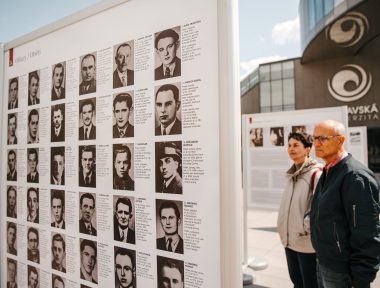Could you briefly introduce yourself?
Dobrý den, I am Kath Khangpiboon, pursuing a PhD in Social Work at the Faculty of Social Studies (FSS), University of Ostrava (UO). Originally from Bangkok, Thailand, I hold Bachelor’s and Master’s degree in social work from Thammasat University. Additionally, I serve as an Assistant Professor at Thammasat University’s Department of Social Work and hold a social worker license.
What is the topic of your interest?
In my professional capacity, I am a Thai transgender woman actively engaged in advocating against transphobia and violence targeting trans individuals and striving to improve access to healthcare services. As one of the co-founders of the Thai Transgender Alliance, I collaborate with fellow activists to address the unmet needs within the transgender community. My media endeavours concentrate on highlighting the fundamental rights of trans individuals and fostering public understanding of LGBTQ issues.
How long is your stay?
My stay in the Czech Republic for my PhD program will span four years. During this time, my focus extends beyond academic pursuits to gaining insights into the socio-cultural aspects of the Czech Republic, particularly its social welfare system, international development, and democracy.
 Did you know anyone in Ostrava (in the Czech Republic) before you came here?
Did you know anyone in Ostrava (in the Czech Republic) before you came here?
Upon my arrival, I had no prior connections in Ostrava. However, I visited Prague last year to present at the IFSW European Conference 2023, allowing me to network with scholars and social workers in the Czech Republic. Before my arrival, I received valuable information from the Czech embassy in Bangkok and Assoc. Prof. Dr Verita Sriratana, a former research scholar, who visited the Czech Republic, and the 2019 “Gratias Agit” award winner awarded by the Minister of Foreign Affairs of the Czech Republic.
Could you briefly describe your research (main goals, expectations, etc.)?
My research primarily focuses on addressing the structural oppression faced by transgender individuals in various societal institutions. I aim to raise awareness, improve healthcare availability, reduce stigma and discrimination, and advocate for policy changes to support legal gender recognition in Thailand and enhance social inclusion.
My research primarily focuses on addressing the structural oppression faced by transgender individuals in various societal institutions.
Why did you choose the Czech Republic for your study?
I chose the Czech Republic due to its robust civil society organisations, social movements, and progressive policy advocacy. The University of Ostrava, particularly the Faculty of Social Studies, aligns with my interests in population groups at risk of social exclusion. The European Research Institute for Social Work at FSS UO further attracted me to pursue my research here.
How did you learn about the possibility of cooperation with the University of Ostrava?
I became aware of the potential for collaboration with the University of Ostrava through various factors. Despite holding degrees in social work and possessing years of experience in advocating for the well-being of transgender communities at national, regional, and international levels, I recognised the critical challenges in promoting transgender rights within existing regulatory frameworks. In pursuing effective strategies, I identified the need for a comprehensive understanding of policy advocacy, public awareness, and the significance of a new gender recognition law.
The prospect of enrolling in the doctoral program in Social Work emerged as an ideal opportunity to bridge these gaps. I acknowledge that my mission to advance transgender rights required a deeper exploration of regulatory mechanisms and pursuing a PhD program at FSS UO appeared to be a strategic move in this direction.
Furthermore, my decision was reinforced by the University’s reputation, renowned for its commitment to research and academic excellence. I firmly believe that participating in the PhD program at FSS UO will allow me to augment my academic knowledge and provide a platform to share my practical experiences in working with LGBTQ communities globally. The collaborative environment at FSS UO and the prospect of engaging with scholars and researchers align perfectly with my aspirations to contribute meaningfully to the discourse on transgender rights.
 Did you consider a different Czech university for your research?
Did you consider a different Czech university for your research?
While considering my options, the support from the Faculty Board for Doctoral Studies of FSS, Faculty staff, and my PhD student buddy at FSS played a crucial role in my decision. The opportunity to engage with academic communities across various universities in the Czech Republic enhances the collaborative aspect of my research.
What are your expectations, and what are you looking for?
I anticipate contributing to promoting transgender rights through academic and practical work. I aim to create positive operational and policy changes, fostering human rights protection and equality. Additionally, I aim to enhance my intellectual capacity, furthering my understanding of social work and gender issues and applying these insights to my activism and academic endeavours.
I firmly believe that participating in the PhD program at FSS UO will allow me to augment my academic knowledge and provide a platform to share my practical experiences in working with LGBTQ communities globally.
What about the Czech weather? Do you like it? What about snow?
Experiencing the Czech weather, particularly during winter, is a new adventure for me. The freezing temperatures on my first day in January emphasise the need for adaptation in this dynamic environment. Snow, a notable seasonal change, is a constant reminder of the ever-evolving nature of my surroundings.
Keep an eye out for the follow-up interview we are preparing with Kath.


 4 min.
4 min. 


